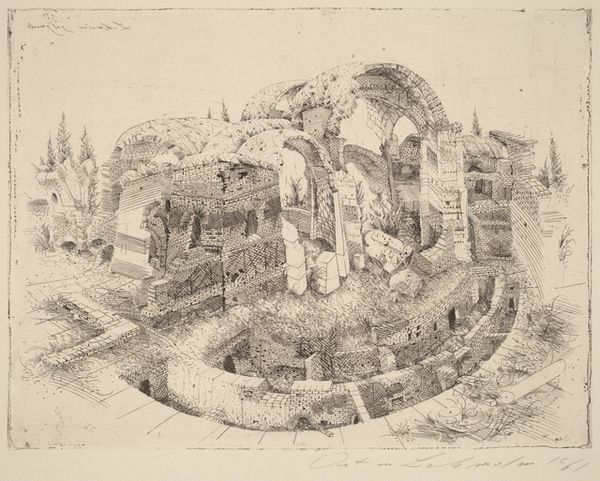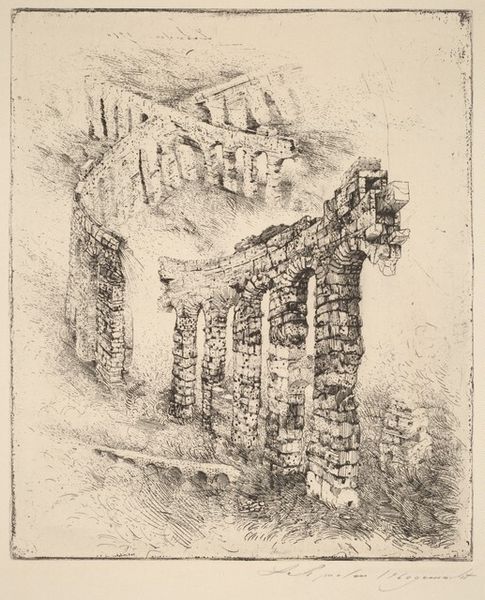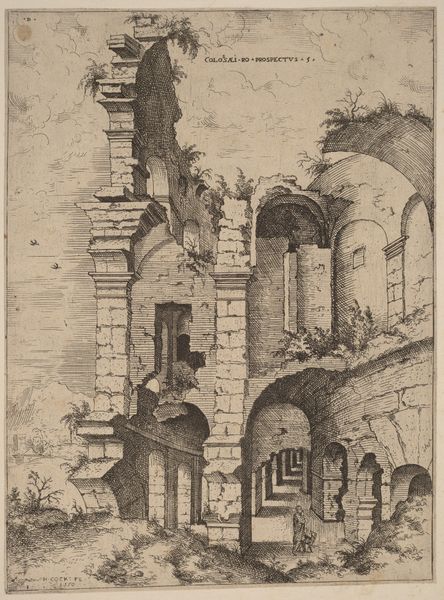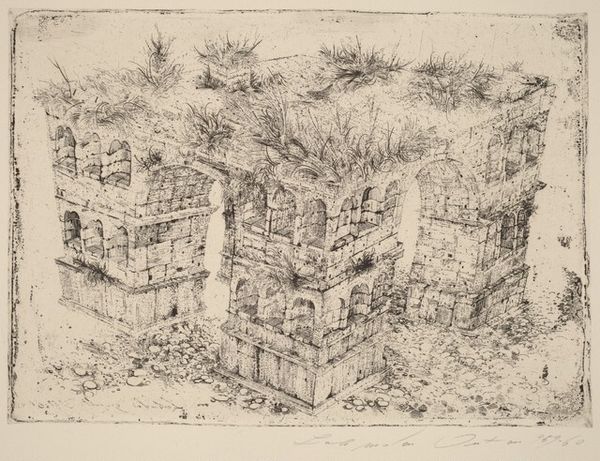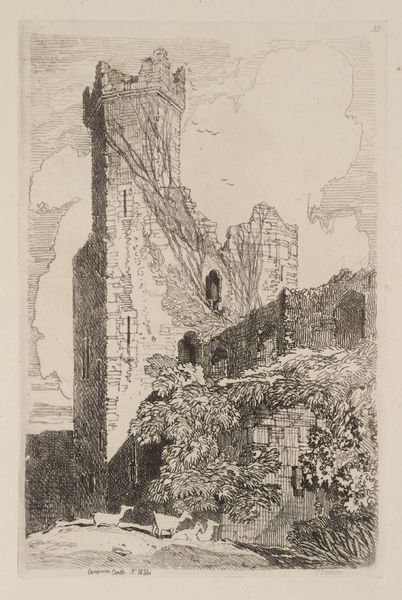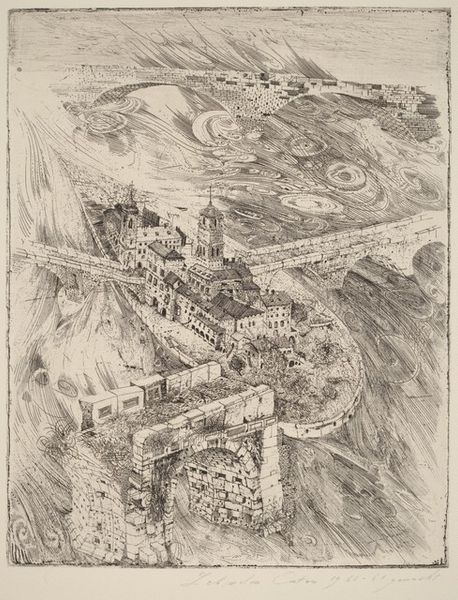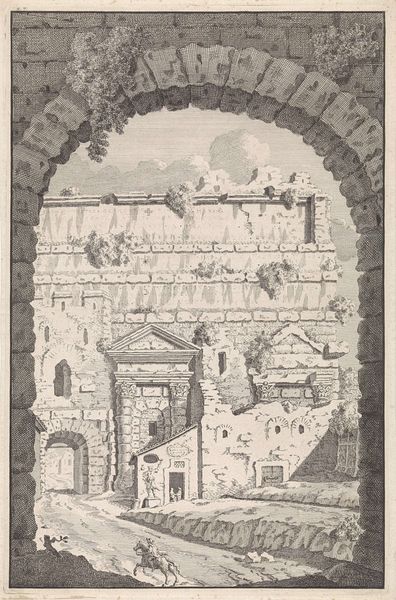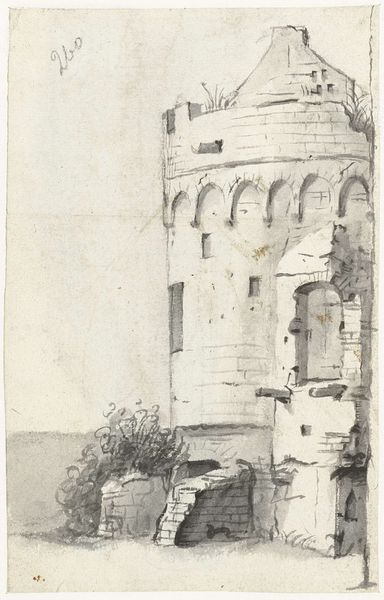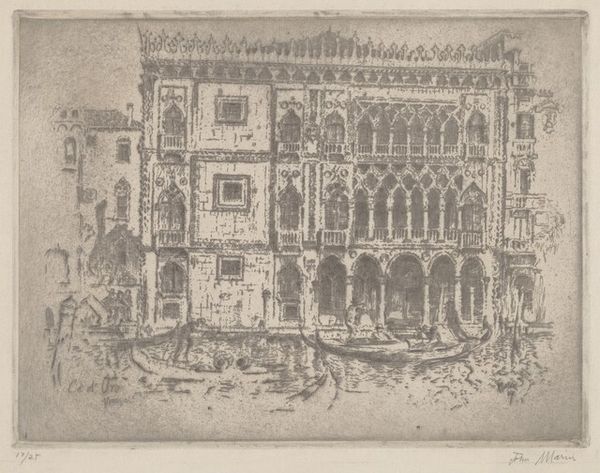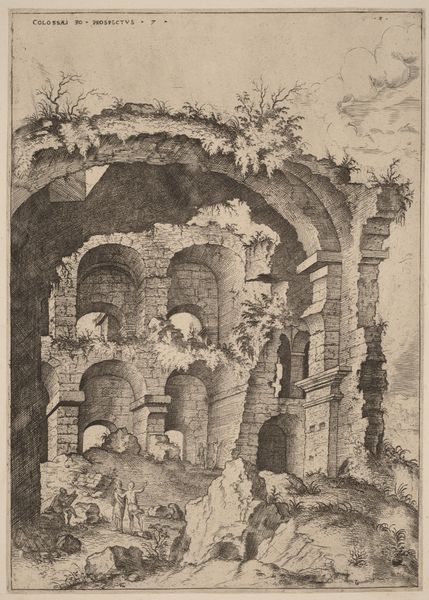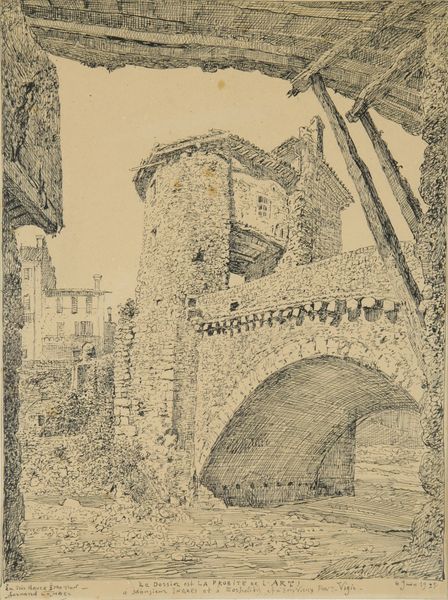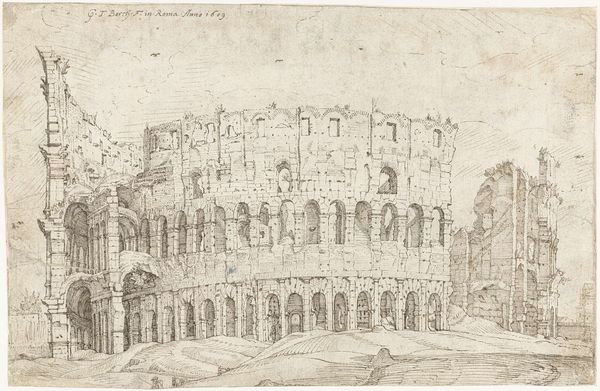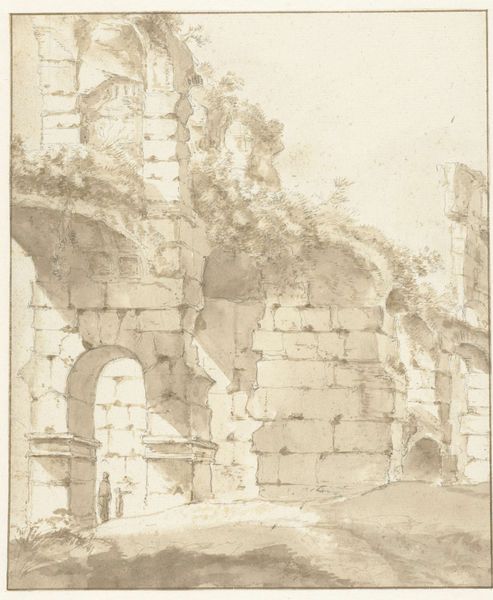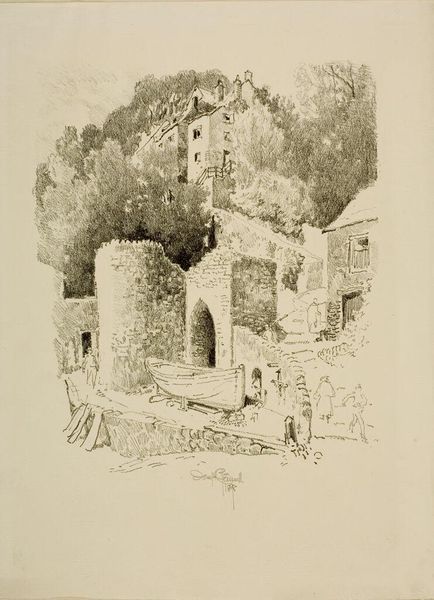
print, etching, architecture
#
pen and ink
#
architectural sketch
#
landscape illustration sketch
#
mechanical pen drawing
# print
#
pen sketch
#
etching
#
old engraving style
#
sketch book
#
sketchwork
#
pen-ink sketch
#
pen work
#
cityscape
#
architecture
Copyright: National Gallery of Art: CC0 1.0
Editor: Here we have Anton Lehmden's "The Theater of Marcellus," an etching from 1961. I'm immediately struck by how he layers architectural elements—it's almost like the past is pressing in on the present. What do you see in this piece? Curator: I see layers of time, yes, but also layers of cultural memory. Consider the Theater of Marcellus itself: an ancient Roman structure repurposed over centuries, first into a fortress, then apartments. Lehmden captures that palimpsest effect beautifully. Notice how the solid arches of the original theater are invaded by windows, rooftops, vegetation? Editor: It's as if nature is reclaiming what was once entirely man-made. Is that significant? Curator: Absolutely. It speaks to the cyclical nature of civilizations—rise, fall, and then integration back into the landscape. Look at the almost frantic energy of the etched lines. Doesn't it suggest a kind of visual anxiety, a tension between the enduring power of the past and the relentless march of the present? What do those modern-looking architectural elements juxtaposed within this ancient ruin say to you? Editor: They feel... unstable, temporary somehow. The ancient theater has a weight, a permanence, that the newer additions lack. So it becomes about resilience? Curator: Precisely. The Theater of Marcellus becomes a symbol of Rome's, and perhaps humanity's, ability to adapt and endure. Even ruins can be inhabited, transformed, given new meaning. But it makes you wonder, what memories will the modern additions hold in the future? What continuities or ruptures will future viewers perceive? Editor: This has given me so much to think about. Thank you for helping me to see beyond the immediate architectural elements to the story being told here. Curator: My pleasure. It's fascinating how a single image can encapsulate centuries of cultural transformation.
Comments
No comments
Be the first to comment and join the conversation on the ultimate creative platform.
